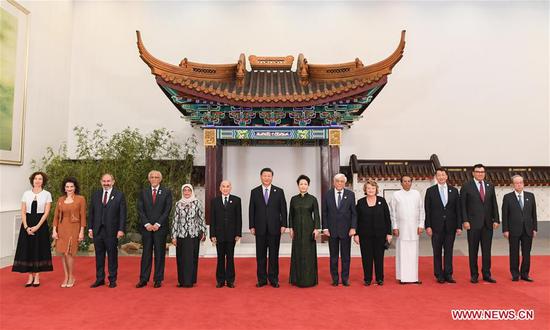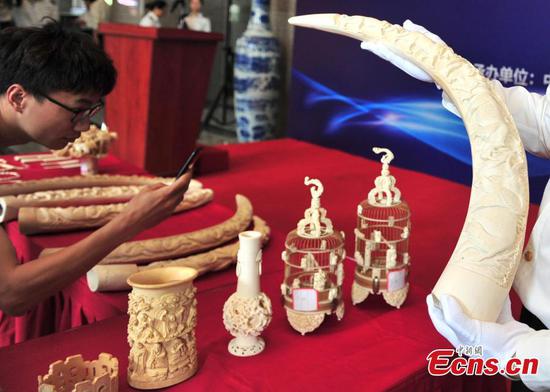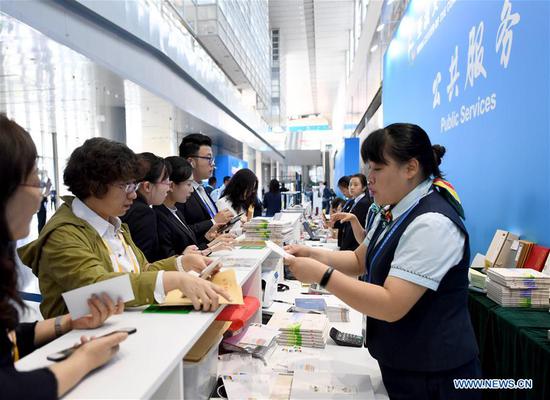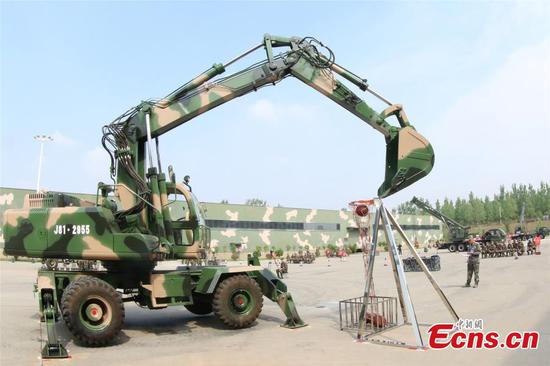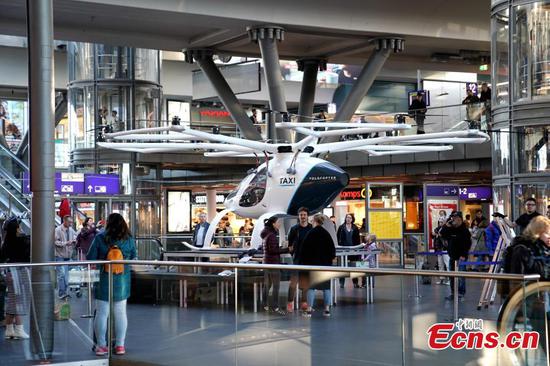
An investor checks stock prices at a brokerage in Jinhua, Zhejiang Province, on May 13. (Photo by SHI BUFA/FOR CHINA DAILY)
Sentiment improves after MSCI hikes weighting of A shares in key indexes
Capital flows to the mainland bourses are expected to accelerate after global index provider MSCI decided to double the weighting of A shares in its indexes on Tuesday.
According to experts, investors seemed to have shrugged off lingering concerns about trade friction and are still clued in on China's growth story and are keen to be a part of it.
The inclusion factor of 238 large-cap A shares in the MSCI indexes will be increased from 5 percent to 10 percent, while another 26 shares are expected to be added with a 10-percent inclusion factor from May 28.
Inclusion factor refers to the free-float market capitalization of a stock that is adjusted by the MSCI for inclusion in its indexes. The 26 new A shares include 18 ChiNext stocks, covering healthcare, communications, software, new energy and other sectors.
The global index provider said it will continue with its three-step plan of further including A shares in August and November, despite external uncertainties and consequent market fluctuations.
Concerns about trade friction had pulled down A shares recently and triggered capital outflows via stock connects with Hong Kong. On Tuesday, the net outflow via the northbound trading of stock connects between mainland and Hong Kong bourses reached 10.8 billion yuan ($1.57 billion), the second highest in history.
"However, in the long run, the trend of foreign capital continuously flowing into the A-share market will not change," said Hyomi Jie, a portfolio manager from Fidelity International, a leading global asset manager.
"I believe China's pace of technological innovation, growing global stature and rapidly transforming economy will be hard to stop. With this in mind, and an incrementally more benign credit and liquidity environment in China, I see many buying opportunities," Jie said.
Also, as China accelerates capital market reforms and gradually lifts restrictions on foreign investment, its allure for global investors is set to grow, Jie said.
Xue Yi, an associate professor of finance at the University of International Business and Economics in Beijing, shared the same view.
"I think the recent capital outflows from the A-share market is not an indication of faltering attractiveness of the market, but a consequence of rising trade uncertainty that is roiling global stock markets," Xue said.
Since the beginning of the year, global stock markets had seen capital outflows of $116 billion till Thursday, the largest amount over the same period since 2016, according to Bank of America Merrill Lynch.
With continuous foreign capital inflows in the long term, the A-share market's efficiency in allocating resources and supporting the real economy may strengthen, Xue said.
The weighting increase, together with the inclusion of A shares by another major index compiler FTSE Russell from June, is expected to bring $150 billion worth of foreign capital into the A-share market from May 2019 to March 2020, according to estimates from JPMorgan.
In the short term, disruptions from trade tensions may continue to influence global financial markets, analysts said.
In the Unites States, the S&P 500 lost 2.41 percent on Monday to close at 2811.87 points, the biggest one-day drop since Jan 3, after China decided to raise tariffs on US imports.
On Tuesday, China's benchmark Shanghai Composite Index declined by 0.69 percent to 2883.61 points. The Hong Kong's Hang Seng Index fell by 1.50 percent to 28,122.02 points.















